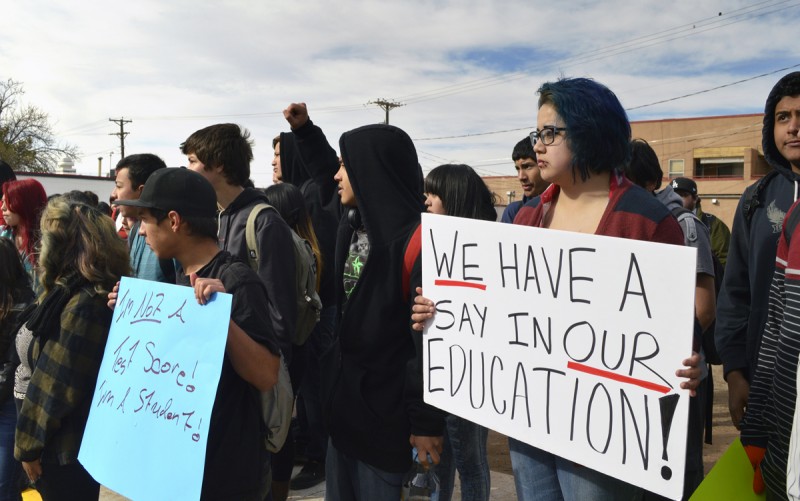Experts predict the opt-out movement will get some of what it wants
New survey suggests education “insiders” are listening to the opt-out movement

Dolores Ramos, 16, right, joins dozens of Highland High School students in Albuquerque, N.M., as students staged a walkout Monday March 2, 2015, to protest a new standardized test they say isn’t an accurate measurement of their education. Students frustrated over the new exam walked out of schools across the state Monday in protest as the new exam was being given. The backlash came as millions of U.S. students start taking more rigorous exams aligned with Common Core standards. AP Photo/Russell Contreras
With up to 80 percent of students refusing to take federally mandated tests in some districts, politicians and education policymakers are paying attention to the national opt-out movement.
A survey conducted this month by the consulting firm Whiteboard Advisors revealed that education policy and political “insiders” think that the opt-out movement will likely sway many state legislatures, but will struggle to change things in Washington.
Only 47 percent of those surveyed, including current and former U.S. Department of Education leaders, Congressional staffers, state school chiefs and experts at think tanks, expect to see any change to federal law. By comparison, 70 percent say they think the thousands of students refusing to take exams will force states to rethink what tests they give and how they use the results of those tests to judge students, educators and schools.
In part, it’s because those surveyed believe the opt-out movement has staying power; 63 percent think more students will opt out next year and 62 percent think the opt-out movement represents a significant challenge to current systems that assess student, teacher and school performance.Experts predict the opt-out movement will get some of what it wants - The Hechinger Report:

